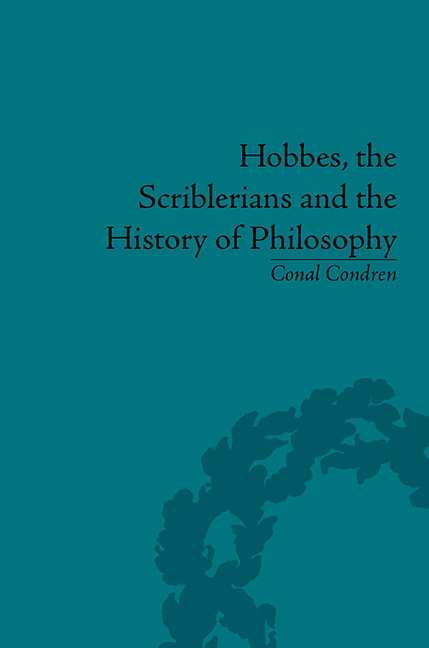Afterword: The History of Early Modern Philosophy: Method, Speech Act and Persona
Summary
Discipline and History
This monograph has attempted to illustrate the historiographical importance of early modern animadversion around conceptions of a philosophic persona. The very need to recover this dimension of debate attests to how points of intellectual demarcation have changed since the end of the seventeenth century. The historiographical difficulty has been in thinking outside the confines of disciplinary pedigrees developed in aid of contemporary institutional identities and wider preconceptions of how the world is intellectually structured. Specifically important here has been the treatment of satire as a literary phenomenon with satirists becoming appropriated by the histories of national literatures, and excluded from philosophy; English literature gets Pope, philosophy gets Hobbes. Once attention is given to the status of the philosophic persona, we can see why satire could be an idiom of philosophizing and why forms of argument now excluded from philosophy had some legitimacy.
For the historian recognition of this may be quite sufficient, with the relative foreignness of the past having a fascination of its own, and the task of reaching up to a horizon of understanding proving sufficiently Syssiphean. How far the patterns of relative contrast are also philosophically enlightening is a more troublesome matter. It raises most generally a question about the wider relevance of historical enquiry in the context of which the more problematic relationships between history and philosophy can be situated.
It is certainly possible that what a historian says about something will prove serendipitously significant for others. In this respect we cannot double guess what might be taken from historiography, reshaped in a context of differing priorities and found useful, or conversely dangerous and counter-productive. It may also be that a perfectly rigorous line of historical enquiry has been initially stimulated by a contemporary concern. But all such imponderables are to one side of a stronger case that enlightenment beyond historical discourse is a dividend to be expected from, or even a criterion for, undertaking historical enquiry in the first place.
- Type
- Chapter
- Information
- Hobbes, the Scriblerians and the History of Philosophy , pp. 139 - 158Publisher: Pickering & ChattoFirst published in: 2014



